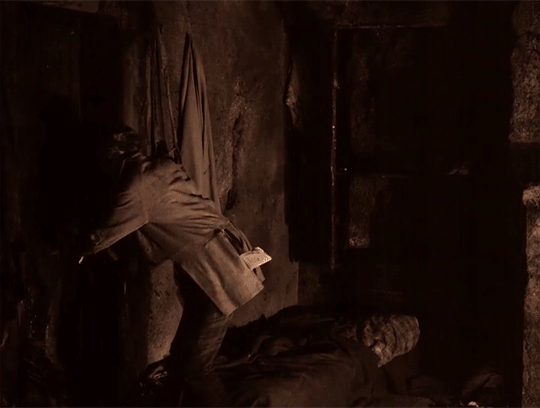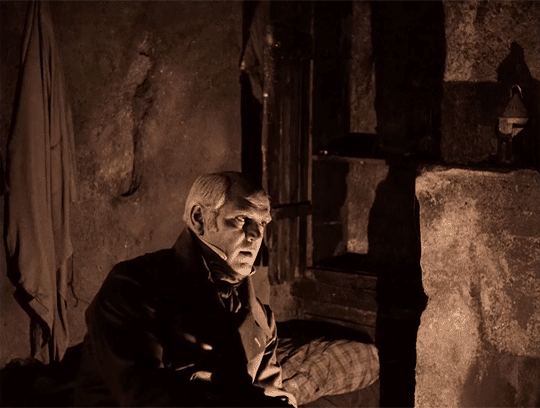#lm 3.8.19
Text
Modern AU Thenardier would DEFINITELY sell NFTs …. There’s an entire portion of the book where he tries to scam Valjean by violently forcing him to buy a piece of art at a price far more than it’s worth. (He also sends scam letters that are the 19th version of email spam.)
Every NFT bro approaching you on twitter:
“I was telling you, sir, and dear protector,” replied Jondrette placing his elbows on the table and contemplating M. Leblanc with steady and tender eyes, not unlike the eyes of the boa-constrictor, “I was telling you, that I have a picture to sell.”
#les mis#les mis letters#lm 3.8.19#thenardier bankrupted his inn bc he was so sure NFTS would be the next big thing#hes one of those crypto bros who had grand fantasies about controlling all of art and finance#so he invested all his family’s money into the Bored Waterloo Ape Yacht Club#only for the NFT bubble to immediately burst leaving him with nothing#…someone needs to draw the bored Waterloo ape yacht club
150 notes
·
View notes
Text
I keep feeling bad for Mme Jondrette. She does almost blow their cover, saved only by her husband's quick thinking, but it's because she thinks he's actually showing her sympathy and kindness. She's awful, but she also seems starved for affection? It's been mentioned before that the actual love in their marriage is gone, and while she loves her daughters, her relationship with them seems to be more of attempted protection foiled by her husband than of shared affection. Part of the issue with M Jondrette's scheme is poor communication and different levels of acting skills (because if he, who's supposedly the more clever of the two, can't keep track of who's he's playing at a given moment, how is his wife supposed to?), his lack of care for other is a hindrance, too.
M Jondrette is back to insisting on his "respectability." He talks at length about how willing he and his family are to work, especially his daughters. His complaints of the paper trade are, unfortunately, probably too accurate. Like Fantine, his daughters would likely be horrifically underpaid for their labor because of their gender, and he's right that the equipment would be expensive and wouldn't really be covered by their meager earnings.
He makes a similar point politically: he's not agitating for political change, he just wants to work as is expected of him. He explicitly states:
"I am not Jacobin, sir, I am not a bousingot"
@pilferingapples has a post defining "bousingot" for those who want more information! The general implication here is someone who's extremely republican, particularly when paired with Jacobin within the sentence (which could generally mean a leftist republican, but also specifically refers to a French Revolutionary group). Basically, M Jondrette is saying that he's particularly "worthy" of M Leblanc's charity because he's not a threat to the social order. In fact, he claims to want to participate in it as-is, aspiring at most to being a member of the more stable sections of the working class.
The suspense here is great as well! The number of men in the room slowly increasing is terrifying, and we can feel M Leblanc growing uneasy as their numbers grow. And ending right before M Jondrette's dramatic reveal is a fun cliffhanger of sorts!
40 notes
·
View notes
Text
- Horror continues when tattooed men with smeared faces arrived in silence, one by one, to the room. While we've encountered some of them earlier in the day through Marius' observations, this fact doesn't diminish the sinister aura of their arrival. Jean Valjean, however, doesn't appear to be afraid of them, although he does start to feel a growing concern. It's quite amusing how the Thénardiers once again fumble their roles (this time, his wife forgets that he should be Fabantou). Yet, as the chapter unfolds, "Fabantou" gradually morphs back into Thénardier, with him ultimately seeking recognition under his own name. Valjean, on the other hand, skillfully feigns ignorance, pretending not to know Thénardier or the origin of the tavern signboard the latter is attempting to sell at an exorbitant price. Valjean's acting abilities clearly outshine Thénardier's (he had to learn this skill as it was an issue of survival for him)!
- Notably Valjean shows more concern for Thénardier’s family then the man himself: he inquires about Azelma’s wound and take notice of the wife’s improved health. Oh, he is such a nice man!
- Thénardier describes the paper-box trade so realistically and in so many details, and his outrage about bad working conditions and unjust payment is absolutely reasonable. Hugo employs his strange tactic once more: having unsavory Thénardier voice valid grievances. Ironically, Valjean, during his time as a factory owner, had also been exploiting female workers, albeit treating them more humanely. Thus, Thénardier's rant may strike a chord with Valjean, prompting introspection.
- It’s a bit disturbing that too many people in the Brick are thinking of killing themselves by drowning: we’ve heard it from Éponine, now from Thénardier (though he is telling this just for rhetorical purpose)… and the most significant instance of jumping into the Seine is yet to come. Drowning in the Seine evidently held a morbid familiarity as a method of ending one's life in old Paris.
29 notes
·
View notes
Text





LES MIS LETTERS IN ADAPTATION - Occupying One’s Self with Obscure Depths, LM 3.8.19 (Les Miserables 1925)
While Jondrette thus talked, with an apparent incoherence which detracted nothing from the thoughtful and sagacious expression of his physiognomy, Marius raised his eyes, and perceived at the other end of the room a person whom he had not seen before. A man had just entered, so softly that the door had not been heard to turn on its hinges. This man wore a violet knitted vest, which was old, worn, spotted, cut and gaping at every fold, wide trousers of cotton velvet, wooden shoes on his feet, no shirt, had his neck bare, his bare arms tattooed, and his face smeared with black. He had seated himself in silence on the nearest bed, and, as he was behind Jondrette, he could only be indistinctly seen.
That sort of magnetic instinct which turns aside the gaze, caused M. Leblanc to turn round almost at the same moment as Marius. He could not refrain from a gesture of surprise which did not escape Jondrette.
“Ah! I see!” exclaimed Jondrette, buttoning up his coat with an air of complaisance, “you are looking at your overcoat? It fits me! My faith, but it fits me!”
“Who is that man?” said M. Leblanc.
“Him?” ejaculated Jondrette, “he’s a neighbor of mine. Don’t pay any attention to him.”
#Les Mis#les Miserables#Les Mis Letters#les Mis Letters in Adaptation#Les Mis 1925#Les Miserables 1925#lesmisedit#lesmiserablesedit#pureanonedits#lesmiserables1925edit#Valjean#Jean Valjean#Thenardier#M. Thenardier#LM 3.8.19
11 notes
·
View notes
Text
Brickclub 3.8.19 ‘Dealing with the darkest depths’
“I don’t know how the government does it, but, on my word of honour, Monsieur, I’m no Jacobin, Monsieur, I’m no troublemaker, I don’t wish them any harm, but if I were the ministers, on my most sacred word, it’d be a very different story.”
This hits differently knowing Thenardier is based on the dictator Hugo fled into exile to escape.
And, of course, both Thenardier and the title of this chapter are talking about the two levels of mines. Thenardier points to the upper mine--the Jacobins--and says “at least I’m not that,” and from the bourgeois point of view, he’s RIGHT to. As we learned earlier, the people in power consider Patron-Minette the lesser of two evils--sure, they cause violence and mayhem, but not violence and mayhem that overthrows existing power structures. In fact, they make people more afraid of anyone who does threaten existing power structures. PM is good for the state--it’s the more constructive upper mine that the bourgeoisie really fears.
The kind of magnetic instinct that alerts the eye made Monsieur Leblanc turn round almost at the same time as Marius.
--I pointed out last chapter the similarity in the journey Marius and Valjean are on here. Here’s another explicit linking of their povs.
Thenardier becomes bizarre in this chapter, moreso than usual. There’s a fairy tale aspect here, as one, two, three--four men with obscured faces come in and sit on the bed. Each time, Monsieur Leblanc is asked to take no notice.
Thenardier rants and rambles and begs him to buy his terrible painting, and it feels like a parody of the other scenes of misery. Thenardier is using the forms of other people in distress and asking for help, but it’s the grotesque, uncanny valley version of it. His histrionic voice doesn’t match his expressionless face. He keeps repeating the same things with different prosody.
He’s killing time before it’s time to spring the trap, clearly.
But his long rant about the construction of pasteboard boxes is detailed and sounds as plausible as every other description of factory work from misérables in this book. How does he know that much about it? Did he genuinely look into this as a trade for his daughters? It does make sense that he might have--before he chose more profitable work for them.
It also recalls the fact that Madeleine was a factory owner. Thenardier feels here like the ghost of a past factory worker, come to haunt a former capitalist. The details are very different, and Madeleine was relatively humane in his treatment of workers--but not so humane that he didn’t make huge profits while people like Fantine struggled. It’s not an invalid thing to haunt Valjean with.
Thenardier’s rant keeps reminding me, rightly or wrongly, of the part in the convent section where a corpse, a dead fish, an outgrown garment, and so on, come to implore the living to take them back. He’s that level of uncanny.
Jondrette repeated two or three times, using all sorts of tonal variations within the same imploring, drawling style: “There’s nothing left for me to do but throw myself in the river! The other day I went down three steps over by the pont d’Austerlitz with that in mind!”
He sounds a lot like Eponine, who talked about how she would have thrown herself in the river except that it was too cold. I don’t doubt her for an instant, of course, and whether Thenardier is telling the truth is a lot more questionable.
But it’s possible he is. Under the fawning and the lies, he’s channeling genuine desperation. And I certainly don’t doubt his rage.
42 notes
·
View notes